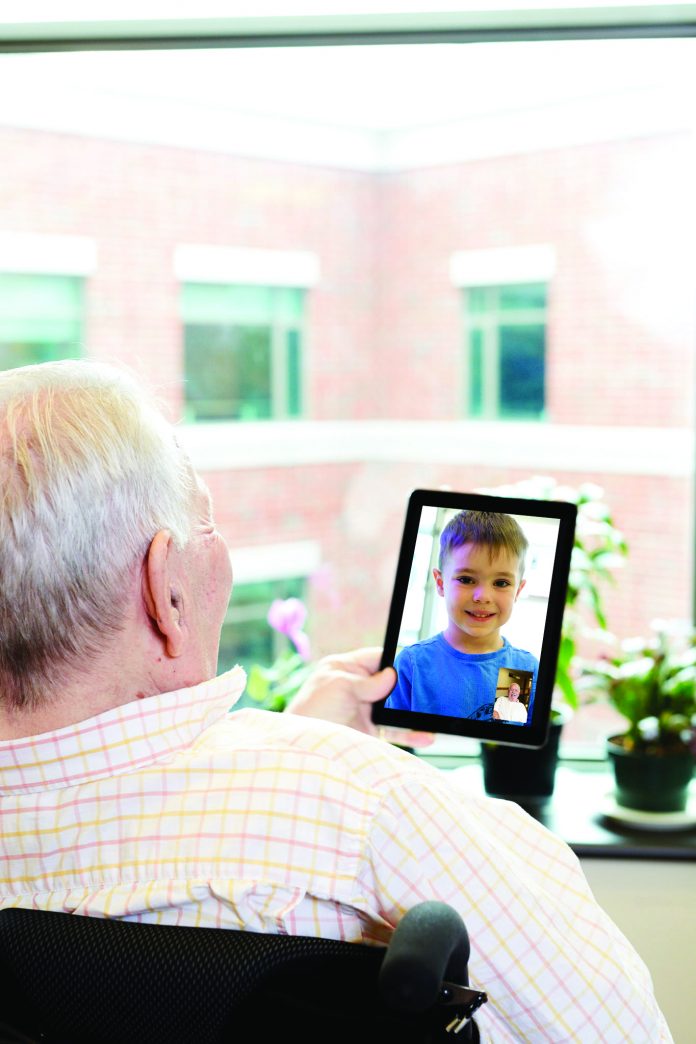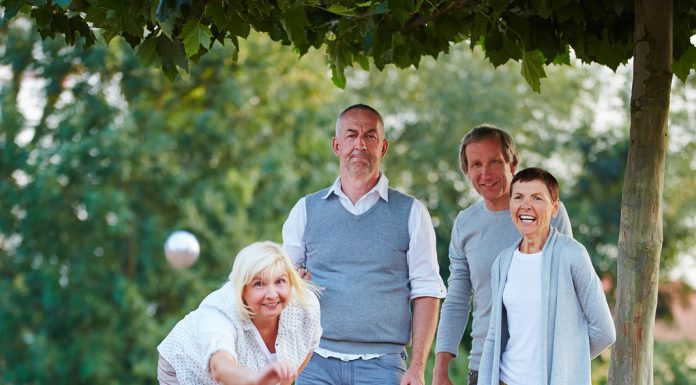Balancing patients’ emotional needs and their safety has never been more challenging than during the COVID-19 crisis. Although social distancing is essential for preventing the spread of infection, it also has the potential to make patients feel alone and isolated at a vulnerable time. By rethinking how it delivers programs and using technology in innovative ways, Runnymede Healthcare Centre ensures patients are safe during their hospital stay, without sacrificing the patient experience.
Starting in February, measures were in place at the hospital to protect patients and staff from the spread of COVID-19, but these escalated dramatically when the pandemic was declared. All visiting was immediately suspended and large group activities were put to a stop. The measures were essential to take, but they removed key sources of support for patients.
“The limits on patients’ social interactions are necessary, but they could also negatively impact their quality of life or even affect their therapy,” said Sarah King, Runnymede’s director of client relations and community engagement. “We recognized that action was needed to maintain patients’ connections with others – it was a priority for us to ensure they weren’t isolated in their rooms.”
One way Runnymede’s activation team responded was by making tablet devices available to patients, enabling face-to-face video chats with loved ones while visiting restrictions are in effect. In addition to helping patients stay connected, they also alleviate anxieties felt by families and loved ones who desperately want to provide their support.
“The devices are in non-stop use for video chats,” said King. “To meet the high demand, we had to double the number of tablets we have at the hospital ever since we suspended visiting.”
Since the devices are handled by multiple patients over the course of a day, they are cleaned between each use. The devices are kept in protective enclosures that are designed to withstand regular cleaning with disinfectants.
With safety modifications in place, the hospital continues to run its activation programs to the fullest extent possible. Sessions during the pandemic occur in smaller settings, with team members ensuring participants are kept a safe distance apart. Celebrations that normally would have been hospital-wide have been converted to floor-based events involving smaller groups.
“In some cases, we incorporate the tablet devices into our activation programming,” said King. “For example, some patients are enjoying virtual tours in place of our regular out trips; others are taking advantage of streaming yoga classes; and those who usually attend our religious gatherings can continue to have their spiritual needs met with online church services.”
Patient safety has never been in sharper focus at Runnymede than during the COVID-19 crisis, but the hospital is ensuring it upholds its commitment to an outstanding patient experience.
“At a time like this, helping patients connect with loved ones and others in the hospital is crucial for preventing them from feeling disengaged or slipping into depression,” said King. “Through the actions we’ve taken, we’re showing that social distancing doesn’t mean social isolation.”























